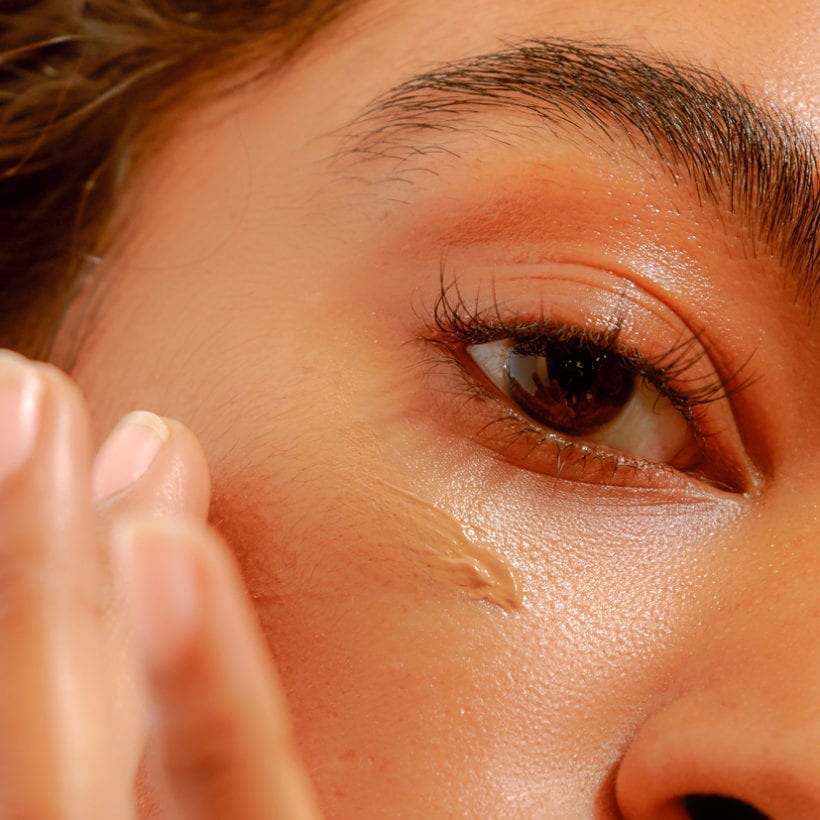If there’s a single most popular skincare ingredient in our generation, there’s no denying that it’s retinol. The vitamin A derivative has been hailed for many skin benefits, including evening out skin tone, fading dark spots, and, most notably, smoothing out wrinkles.
What is retinol?
“Retinol is perhaps the best-studied ingredient we have to fight the signs of skin aging,” notes Joshua Zeichner, M.D., director of cosmetic and clinical research in dermatology at Mount Sinai Medical Center. “It also enhances the production of collagen to improve the appearance of fine lines and wrinkles, has anti-inflammatory effects in the skin to soothe inflammation and enhances cell turnover to brighten and even the complexion.”
Retinol as an eye cream
If you’re not currently using retinol in your skincare regimen, you probably know you should be — especially in the under-eye area, which is much more prone to aging than other parts of the face. There are many reasons for this, according to Blair Murphy-Rose, M.D., New York City-based dermatologist and clinical assistant professor at NY Presbyterian Hospital–Weill Cornell Medical Center, including the constant movement of the muscles around the eyes for smiling, winking and opening and closing the eyes, etc., which makes the skin prone to fine lines. “The under-eye skin is very thin and at risk of increased thinning over time and with cumulative sun exposure,” she says. “The collagen production-stimulating benefits of retinol can be especially effective for this skin.”
Who can benefit from retinol eye cream?
Pretty much everyone can benefit from a retinol-containing eye cream because, even if you don’t currently have wrinkles in your under-eye area or thinning of the skin that is common with age, Dr. Murphy-Rose points out that using a retinol-containing eye cream can help to prevent these signs of aging by boosting collagen production that naturally teeters off as we get older.

Individuals who are pregnant, actively trying to conceive or breastfeeding should avoid retinol. For these individuals, she recommends focusing on wearing sunglasses to help prevent sun damage and signs of aging around the eyes.
How to use a retinol eye cream
Retinol is an effective skincare ingredient, but it can come with a slew of unwanted side effects. For this reason, it’s a good idea to find a balanced formulation and to know how to apply it properly as well as know what type of retinol is best for your skin. Here are some derm-approved tips for how to apply eye cream.
Start with a lower concentration first
“Retinols always can promote irritation and dryness when one starts them, and these symptoms always improve with continued use,” warns Jennifer Segal, M.D., dermatologist and owner of Metropolitan Dermatology Institute in Houston. For this reason, she recommends starting with a milder retinol concentration and slowly graduating to a stronger tolerance than starting with a product that is too irritating. Many of the over-the-counter retinols are at a more tolerable concentration than those that your dermatologist might prescribe, so they’re a good place to start.
Apply just a few times a week at first
It’s a good idea to start the application of retinols slowly. Given the predictable side effects of starting retinols, all of which improve with time, Dr. Segal always recommends that her patients begin with an application three times a week. “If tolerable, this can be increased to every other night and eventually to every night, or if it is too irritating, you can reduce use to once a week,” she says. “It is always better to be able to use an active consistently than to be too aggressive and need to start and stop.”
Use at night
Many skincare ingredients are best used in the morning, such as sunscreen, vitamin C, peptides, etc., but retinol is one that you should be using at night only. This is because retinol makes your skin more susceptible to the sun’s harmful rays, notes Dr. Murphy-Rose. Also, the retinol compounds are really unstable with UV exposure, so the light will end up breaking the retinol down while it’s in your skin so that it won’t perform as well. “It is important to protect your skin especially well while using a retinol,” she says. “Exercise caution with the sun and use an SPF 30 or higher mineral sunblock containing zinc oxide and/or titanium dioxide religiously.”
Remember, it usually takes time to see the skin benefits
While most of us love to see results as soon as possible, retinol is one of those skincare ingredients that take time to start working. “One should really expect to see significant results over a period of months (not days) and not discontinue use earlier unless, of course, there is persistent skin irritation after decreasing amount, frequency, and if needed, the strength of your retinol,” says Dr. Murphy-Rose. “While many notice an improvement in just a few weeks, the skin benefits are cumulative over time.” The good news: The longer you use it, the better the outcome typically.
We only recommend products we have independently researched, tested, and loved. If you purchase a product found through our links, Sunday Edit may earn an affiliate commission.








